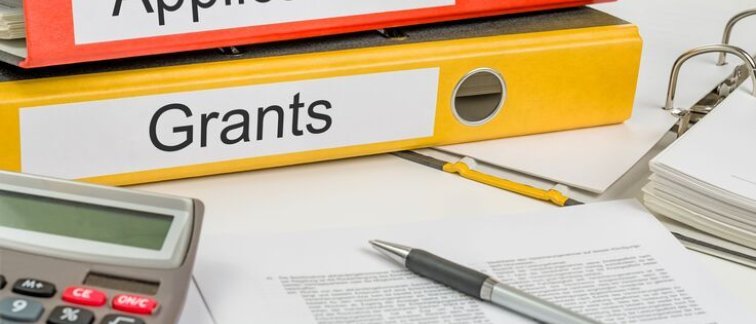Outline of the internal KWF assessment procedure
- Submission of a pre-proposal about 6 weeks before the KWF deadline. Your pre-proposal will be reviewed by a committee member and one of your suggested reviewers.
Based on comments of the reviewers, the committee will give a positive (sometimes with suggestions for improvement) or negative advice for submission of the pre-proposal to KWF. - KWF will invite applicants with a positively evaluated pre-proposal to submit a full proposal.
- Before the full proposal can be submitted to KWF, a second internal review will follow for possible improvements. We will inform applicants separately about this phase.
- For some thematic calls or long-term programmes, alternative procedures are in place.
KWF Grant types
KWF Kankerbestrijding - Research and Implementation programme offers different types of funding, depending on the specific research phase. The following types of funding are available:
Research Project
A research project is a research proposal with a defined scope in terms of goal, expected results, duration, costs and research group(s)). There is no limit to the requested budget and time. However, the requested budget should be supported by financial projections. If the project involves collaboration between multiple organisations, the added value of each of the separate organisations has to be substantiated
Unique High Risk Project
The funding type Unique High Risk project (UHR) provides the possibility to perform short-term preparatory work to determine whether a not yet fully crystallized idea offers viable opportunities. This type of funding is to validate innovative ideas, to realize preliminary work and is meant for non-existing lines of research on a mostly theoretical basis, but with high potential for breakthroughs in science. Therefore, the project leader is an experienced scientist in the specific area to ensure pilot experiments will be undertaken efficiently.
Consortium Project
A project performed by four or more organizations (this does not include service providers, inclusion centers and co-funders) is always considered to be a Consortium project. Because of the complexity of a Consortium project, a project manager must be appointed to coordinate the project. In general, the duration of a Consortium project may last up to six years.
Update about the Young Investigator Grant
KWF is introducing an important change in its funding opportunities for early-career researchers. As of September 2025, the Young Investigator Grant (YIG) will no longer be offered as part of the regular Open Call, but instead through a dedicated, annual call.
The YIG is for researchers who are in an early stage of their scientific career. The grant is designed to give young talented researchers an opportunity to initiate a strong and independent oncological research line. The researcher must be capable of conceiving, designing, leading, and executing the project independently.
For more information on KWF grants, visit the KWF website.
Upcoming deadlines
KWF Call 2026-2 Development - KWF deadline November 11, 2025 (pre-proposals) and 31 March, 2026 (full proposals, KWF invitation only)
KWF YIG 2026 - KWF deadline November 11, 2025 (pre-proposals) and 7 April, 2026 (full proposals, KWF invitation only)
KWF Call 2026-3 Exploration – KWF deadline March 31, 2026 (pre-proposals) and September 2026 (full proposal, KWF invitation only)
Mandatory CCA support procedure and deadlines (only applicable for the Exploration, Development and YIG calls):
- Send your completed pre-proposal (see format EXPL call or DEV call) to cca@amsterdamumc.nl before Sunday 1 March 23:59.
- All pre-proposals will be reviewed and discussed by the CCA internal committee. You will receive the reviews, feedback, and submission decision before Monday 23 March.
- If you receive a positive advice, you can improve your pre-proposal based on the feedback. The KWF pre-proposal deadline is Tuesday 31 March at 12:00 (noon).
- Internal support is available for both pre-proposals and full proposals (by KWF invitation only) via our grant advisor, Marlize van Breugel (m.e.vanbreugel@amsterdamumc.nl).
- If you are unsure whether your project fits the scope of the Exploration Call, please contact Marlize for advice.
Financial checklist for KWF applicants
This checklist has been prepared in consultation with Amsterdam UMC project controllers and aims to support applicants in drafting the budget for their application.
Download the KWF financial checklist.
Data management section
For the data management section of the proposal, it is sufficient to include a short summary of the most important points regarding data types, storage and accessibility. State that an elaborated data management plan (DMP) will be designed according to an institutional DMP template which is in line with the FAIR principles, will adresses all points from the KWF guidelines.
Download a short template text for the data management section. This text can be adjusted according to your project requirements.
KWF review committees
There are two reviewing committees, a pre-clinical and a clinical committee. The committees consist of the following members:
KWF pre-clinical research committee:
Prof. dr. M.F. (Maarten) Bijlsma, voorzitter
Prof. dr. V.W. (Victor) van Beusechem
Prof. dr. R.H. (Ruud) Brakenhoff
Prof. dr. J. (Jacqueline) Cloos
Dr. J. (Jeroen) Guikema
Dr. M. (Myron) Best
Dr. J.M.M. (Joke) den Haan
Dr. A.M. (Marijn) Kramer
Dr. R. (Rienk) Nieuwland
Dr. M. (Marcel) Spaargaren
Dr. M. (Maria) Themeli
Dr. R. (Rieneke) van de Ven
Dr. R.M.F. (Rob) Wolthuis
M.A.J. (Marieke) Koelink, secretaris
M.E. (Marlize) van Breugel, subsidieadviseur
KWF clinical research committee:
Prof. dr. L.J.A. (Lukas) Stalpers, voorzitter
Dr. I.H. (Imke) Bartelink
Prof. dr. M.G.H. (Marc) Besselink
Dr. A.M.J. (Annemarie) Braamse
Prof. dr. N.C.T. (Nicole) van Grieken
Dr. C.J.A. (Niels) Haasbeek
Prof. dr. M. (Martin) Klein
Prof. dr. A.J. (Aart) Nederveen
Dr. C.E. (Caroline) Rutten
Prof. dr. M.C. (Martijn) Schut
Dr. R. (Rutger-Jan) Swijnenburg
Dr. R.P. (Rogier) Voermans
Dr. J. (Jens) Voortman
Prof. dr. J.W. (Hanneke) Wilmink
Prof. dr. J. (Josée) Zijlstra
M.A.J. (Marieke) Koelink, secretaris
M.E. (Marlize) van Breugel, subsidieadviseur

